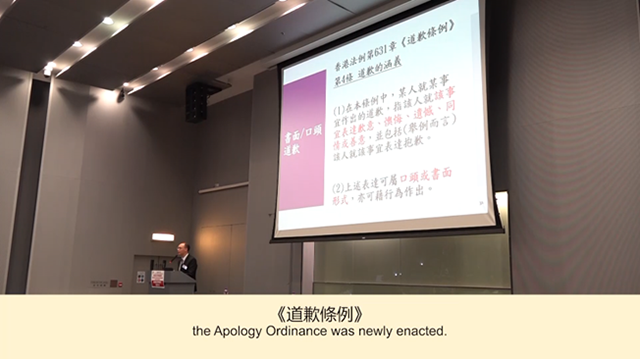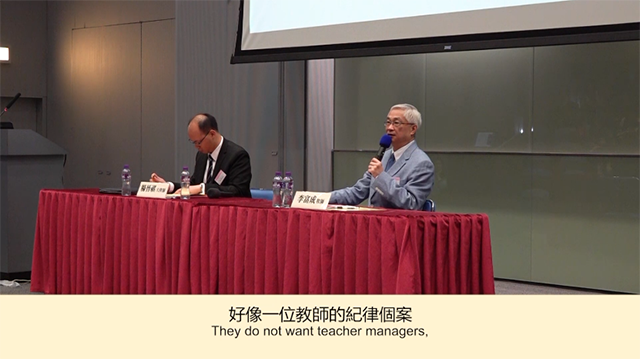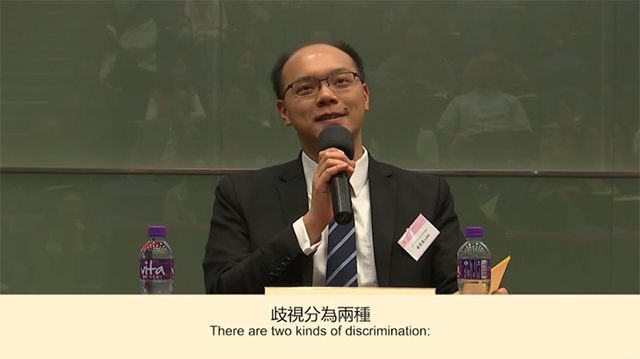Handling School Affairs
Suggested learning time: approximately 1 hour
This section provides highlights of the thematic seminars organised previously for school managers, so as to facilitate school managers to acquire, from the speakers’ explanation and case sharing in the video clips, knowledge related to school operation and governance, with a view to enhancing their governance capabilities.
Disclaimer
Views in the videos are purely shared by the speaker in his/her capacity. They are for reference only and should not be construed as legal advice or recommendation, which schools should obtain in each particular case if necessary.
Before watching the videos, please think about the following question:
Question
- As a member of Incorporated Management Committee (IMC), what legal responsibilities do school managers need to know in order to effectively handle school affairs?
Questions in Video
1. Why do some people believe that we should avoid making apologies haphazardly in public?
Please refer to the video from 0:06 to 0:51.
2. Why was the Apology Ordinance introduced?
Please refer to the video from 1:44 to 2:25.
3. Does the Apology Ordinance apply to criminal proceedings?
Please refer to the video from 2:26 to 3:22.
Video 2
Withdrawal from Meetings
(Speaker: Mr. Jacky YEUNG, Barrister and Rev. LEE Fu-sing)
[Video length: about 4 minutes]
Questions in Video
1. Could an IMC take the initiative to request a school manager to withdraw from a meeting? Can school managers request to withdraw from a meeting on their own?
Please refer to the video from 0:05 to 2:43.
2. If an IMC requests a school manager to withdraw from a meeting, causing disagreement, how should it be handled?
Please refer to the video from 2:44 to 3:30.
Video 3
Discrimination
(Mr. Jacky YEUNG, Barrister and Rev. LEE Fu-sing)
[Video length: about 5 minutes]
The above video features a case sharing about students with physical disability.
Case Background
Student D in a certain school suffered from polio, and he/she was consistently teased by classmates about his/her way of walking. There have even been instances where the crutch was even taken away from him/her. Student D reported these incidents to the teacher. However, despite repeated warnings, his/her classmates did not stop their bullying behavior, and the teacher only verbally reminded them to respect Student D and refrain from such actions, without taking any further actions such as notifying the parents of the students involved or imposing any punishment. As a result, Student D continues to be being bullied by his/her classmates from time to time. On the other hand, the school totally forbade Student D, for safety reasons, from participating in any high-risk activities both inside and outside the campus. These activities include Physical Education lessons, ball competitions, adventure activities, visits, and school picnics, etc. Student D’s parents perceived this as unfair treatment and discrimination against Student D, leading them to accuse the school’s IMC by issuing a demand letter.
Questions in Video
1. If a school totally forbids a student with physical disability from joining any activities, would it contravene the Disability Discrimination Ordinance?
Please refer to the video from 1:04 to 2:46.
2. What measures should the IMC take to address discrimination and bullying issues within the school?
Please refer to the video from 3:23 to 4:55.
Suggested Follow-up Activities
Please read the content related to School Bullying on the EDB webpage "Resources of Student Guidance and Discipline Services"
Regarding the content of the aforementioned videos, please consider cases and review measures that are worth discussing or sharing in the IMC meeting.
Additional Reference Materials



